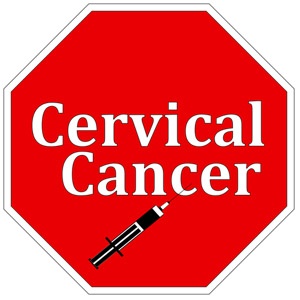
The outlook for women with pre-cancerous changes of the cervix or very early cancer of the cervix is excellent; nearly all patients with these conditions can be cured.
Researchers continue to look for new and better ways to treat invasive cervical cancer.
Patients and their families are naturally concerned about what the future holds. Sometimes patients use statistics to try to calculate their chances of being cured. It is important to remember, however, that statistics are averages based on large numbers of patients. They cannot be used to predict what will happen to a particular individual because no two people are alike; treatments and responses vary greatly. The doctor who takes care of the patient and knows her medical history is in the best position to talk with her about her chance of recovery (prognosis).
Doctors often talk about surviving cancer, or they may use the term remission rather than cure. Although many women with cervical cancer recover completely, doctors use these terms because the disease can recur. (The return of cancer is called a recurrence.)
What can we hope for in the future?
The Pap test is an excellent tool to detect cervical cancer early. It is however not perfect and some cancers and pre-cancers may be missed despite regular testing. Newer techniques of preparing and interpreting a Pap smear e.g. liquid based cytology are available to increase the accuracy of the test.
Another tool that can be used to help in the detection of the group of individuals that may have a high risk for cervical cancer is a test for HPV infection. There are blood and fluid tests available that can detect the presence of cancer causing HPV, but at the moment there is disagreement among doctors about the exact use for the test.
Cervical cancer is a major problem in South Africa and in many countries of the world where screening programmes are not well developed. A potential solution may be population-based immunisation against the most common types of cancer-causing Human Pappiloma Viruses. Immunisation strategies are being developed and tested and may be available in the next decade.
(Reviewed by Professor Lynette Denny, Gynaecology Oncology Unit, Department Obstetrics & Gynaecology, University of Cape Town/Groote Schuur Hospital)
Researchers continue to look for new and better ways to treat invasive cervical cancer.
Patients and their families are naturally concerned about what the future holds. Sometimes patients use statistics to try to calculate their chances of being cured. It is important to remember, however, that statistics are averages based on large numbers of patients. They cannot be used to predict what will happen to a particular individual because no two people are alike; treatments and responses vary greatly. The doctor who takes care of the patient and knows her medical history is in the best position to talk with her about her chance of recovery (prognosis).
Doctors often talk about surviving cancer, or they may use the term remission rather than cure. Although many women with cervical cancer recover completely, doctors use these terms because the disease can recur. (The return of cancer is called a recurrence.)
What can we hope for in the future?
The Pap test is an excellent tool to detect cervical cancer early. It is however not perfect and some cancers and pre-cancers may be missed despite regular testing. Newer techniques of preparing and interpreting a Pap smear e.g. liquid based cytology are available to increase the accuracy of the test.
Another tool that can be used to help in the detection of the group of individuals that may have a high risk for cervical cancer is a test for HPV infection. There are blood and fluid tests available that can detect the presence of cancer causing HPV, but at the moment there is disagreement among doctors about the exact use for the test.
Cervical cancer is a major problem in South Africa and in many countries of the world where screening programmes are not well developed. A potential solution may be population-based immunisation against the most common types of cancer-causing Human Pappiloma Viruses. Immunisation strategies are being developed and tested and may be available in the next decade.
(Reviewed by Professor Lynette Denny, Gynaecology Oncology Unit, Department Obstetrics & Gynaecology, University of Cape Town/Groote Schuur Hospital)




 Publications
Publications
 Partners
Partners
















